Peugeot 308 vs Suzuki Vitara - Differences and prices compared
Costs and Efficiency:
Looking at overall running costs, both models reveal some interesting differences in everyday economy.
Suzuki Vitara has a clearly perceptible advantage in terms of price – it starts at 23600 £, while the Peugeot 308 costs 29200 £. That’s a price difference of around 5666 £.
Fuel consumption also shows a difference: Peugeot 308 manages with 2.30 L and is therefore significantly more efficient than the Suzuki Vitara with 5 L. The difference is about 2.70 L per 100 km.
Engine and Performance:
Power, torque and acceleration say a lot about how a car feels on the road. This is where you see which model delivers more driving dynamics.
When it comes to engine power, the Peugeot 308 has a evident edge – offering 195 HP compared to 129 HP. That’s roughly 66 HP more horsepower.
In acceleration from 0 to 100 km/h, the Peugeot 308 is distinct quicker – completing the sprint in 7.60 s, while the Suzuki Vitara takes 9.50 s. That’s about 1.90 s faster.
In terms of top speed, the Peugeot 308 performs to a small extent better – reaching 225 km/h, while the Suzuki Vitara tops out at 190 km/h. The difference is around 35 km/h.
There’s also a difference in torque: Peugeot 308 pulls distinct stronger with 300 Nm compared to 235 Nm. That’s about 65 Nm difference.
Space and Everyday Use:
Beyond pure performance, interior space and usability matter most in daily life. This is where you see which car is more practical and versatile.
Seats: offers more seating capacity – vs .
In curb weight, Suzuki Vitara is to a small extent lighter – 1255 kg compared to 1453 kg. The difference is around 198 kg.
In terms of boot space, the Peugeot 308 offers hardly perceptible more room – 412 L compared to 375 L. That’s a difference of about 37 L.
In maximum load capacity, the Peugeot 308 performs somewhat better – up to 1323 L, which is about 203 L more than the Suzuki Vitara.
When it comes to payload, Peugeot 308 clearly perceptible takes the win – 503 kg compared to 400 kg. That’s a difference of about 103 kg.
Who comes out on top?
Overall, the Peugeot 308 shows itself to be wins the duel decisively and secures the title of DriveDuel Champion.
It convinces with the more balanced overall package and proves to be the more versatile choice for everyday use.
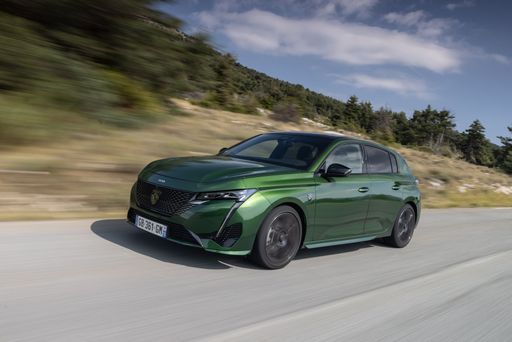 @ Peugeot / Stellantis Media
@ Peugeot / Stellantis Media
Peugeot 308
Costs and Consumption
View detailed analysis
Engine and Performance
View detailed analysis
Dimensions and Body
View detailed analysis
Peugeot 308
The Peugeot 308 brings a sleek, feline profile and an unexpectedly upscale cabin, with clever packaging and materials that feel a touch more premium than you might expect. It’s composed on the road, easy to live with for daily life, and a smart choice if you want a stylish hatch that still behaves when the road gets interesting.
details @ Peugeot / Stellantis Media
@ Peugeot / Stellantis Media
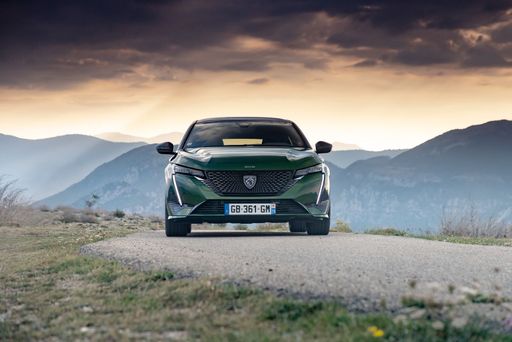 @ Peugeot / Stellantis Media
@ Peugeot / Stellantis Media
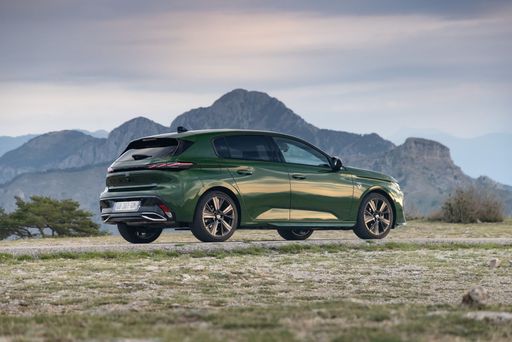 @ Peugeot / Stellantis Media
@ Peugeot / Stellantis Media
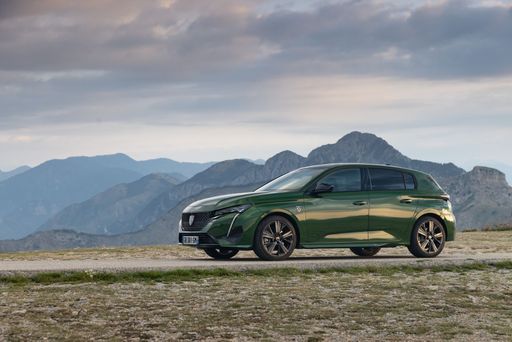 @ Peugeot / Stellantis Media
@ Peugeot / Stellantis Media
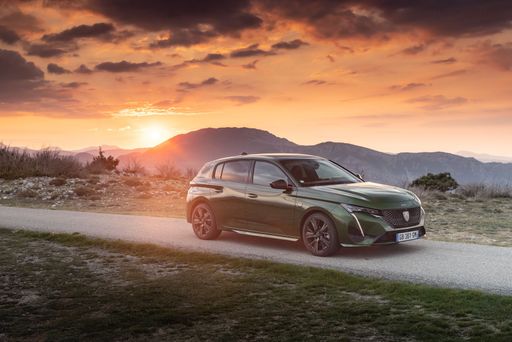 @ Peugeot / Stellantis Media
@ Peugeot / Stellantis Media
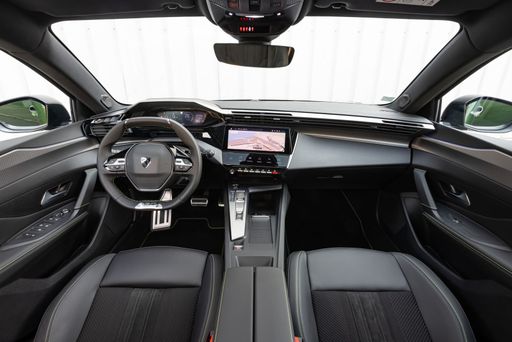 @ Peugeot / Stellantis Media
@ Peugeot / Stellantis Media
Suzuki Vitara
The Vitara is a city-smart SUV with a cheeky streak of off-road promise, perfect for drivers who want practicality without pretense. It’s honest, easy to live with and surprisingly likeable, a sensible companion for everyday adventures and weekend escapes.
details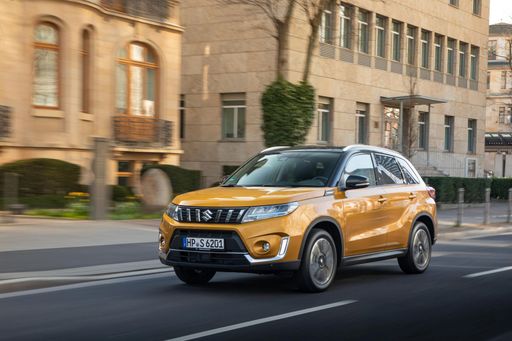 @ Suzuki Motor Corporation
@ Suzuki Motor Corporation
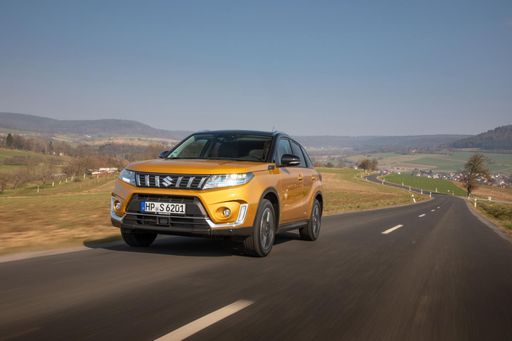 @ Suzuki Motor Corporation
@ Suzuki Motor Corporation
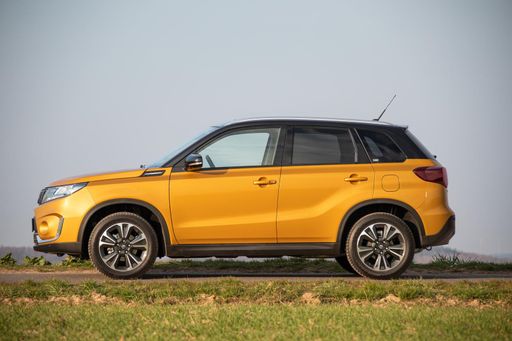 @ Suzuki Motor Corporation
@ Suzuki Motor Corporation
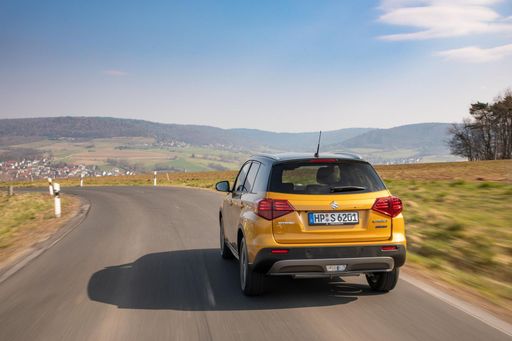 @ Suzuki Motor Corporation
@ Suzuki Motor Corporation
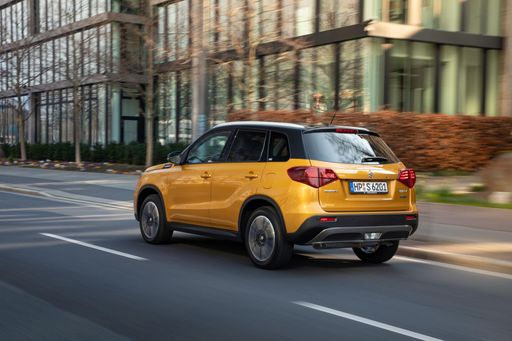 @ Suzuki Motor Corporation
@ Suzuki Motor Corporation
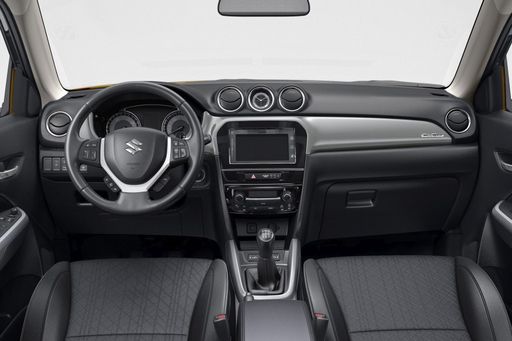 @ Suzuki Motor Corporation
@ Suzuki Motor Corporation
 @ Peugeot / Stellantis Media
@ Peugeot / Stellantis Media
|
 @ Suzuki Motor Corporation
@ Suzuki Motor Corporation
|
|
|
|
Costs and Consumption |
|
|---|---|
|
Price
29200 - 42600 £
|
Price
23600 - 30900 £
|
|
Consumption L/100km
2.3 - 5 L
|
Consumption L/100km
5 - 5.9 L
|
|
Consumption kWh/100km
15.60 kWh
|
Consumption kWh/100km
-
|
|
Electric Range
78 - 450 km
|
Electric Range
-
|
|
Battery Capacity
0.40 kWh
|
Battery Capacity
-
|
|
co2
0 - 129 g/km
|
co2
113 - 138 g/km
|
|
Fuel tank capacity
42 - 52 L
|
Fuel tank capacity
47 L
|
Dimensions and Body |
|
|---|---|
|
Body Type
Hatchback
|
Body Type
SUV
|
|
Seats
5
|
Seats
5
|
|
Doors
5
|
Doors
5
|
|
Curb weight
1453 - 1749 kg
|
Curb weight
1255 - 1395 kg
|
|
Trunk capacity
314 - 412 L
|
Trunk capacity
289 - 375 L
|
|
Length
4367 mm
|
Length
4185 mm
|
|
Width
1852 mm
|
Width
1775 mm
|
|
Height
1438 mm
|
Height
1595 mm
|
|
Max trunk capacity
1258 - 1323 L
|
Max trunk capacity
1046 - 1120 L
|
|
Payload
430 - 503 kg
|
Payload
375 - 400 kg
|
Engine and Performance |
|
|---|---|
|
Engine Type
Petrol MHEV, Diesel, Plugin Hybrid, Electric
|
Engine Type
Petrol MHEV, Full Hybrid
|
|
Transmission
Automatic
|
Transmission
Manuel, Automatic
|
|
Transmission Detail
Dual-Clutch Automatic, Automatic Gearbox, Reduction Gearbox
|
Transmission Detail
Manual Gearbox, Automated Manual, Automatic Gearbox
|
|
Drive Type
Front-Wheel Drive
|
Drive Type
Front-Wheel Drive, All-Wheel Drive
|
|
Power HP
131 - 195 HP
|
Power HP
110 - 129 HP
|
|
Acceleration 0-100km/h
7.6 - 10.6 s
|
Acceleration 0-100km/h
9.5 - 12.7 s
|
|
Max Speed
170 - 225 km/h
|
Max Speed
180 - 190 km/h
|
|
Torque
230 - 300 Nm
|
Torque
235 Nm
|
|
Number of Cylinders
3 - 4
|
Number of Cylinders
4
|
|
Power kW
96 - 144 kW
|
Power kW
81 - 95 kW
|
|
Engine capacity
1199 - 1598 cm3
|
Engine capacity
1373 - 1462 cm3
|
General |
|
|---|---|
|
Model Year
2025
|
Model Year
2024 - 2025
|
|
CO2 Efficiency Class
C, D, B, A
|
CO2 Efficiency Class
D, C, E
|
|
Brand
Peugeot
|
Brand
Suzuki
|
Is the Peugeot 308 offered with different drivetrains?
Available configurations include Front-Wheel Drive.
The prices and data displayed are estimates based on German list prices and may vary by country. This information is not legally binding.
